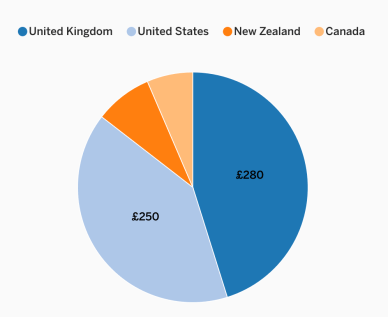Around this time last year, I met a friend for coffee. And I remember telling that friend about how deflated I felt. I listed off all of the things I’d applied for. All of the opportunities I’d tried to get and failed to even secure an interview for.
I’d shot for the moon but had very much not landed among the stars.
Between now and then, so many bigger life changes have happened. Mental health breakdowns, friends leaving, a death in the family. Shit to put creative setbacks in perspective.
At this point, I can’t even remember what most of last year’s setbacks even were. But I do remember how they felt, especially now, as I’m in the midst of a fresh batch of rejection emails.
It’s so easy to feel defeated. To want to give up. I have cried literal tears on more than a few occasions. But I’m still glad I applied for the things I didn’t get. That I tried.
It’s so hard to get an outside perspective on yourself, but I’ve had people tell me that I come across as successful. As thriving. My writing and art flourishing.
They see the social media posts about the acceptances. The publications. The events.
Unless you’re also trying to ‘make it’, you have no idea that for everything that falls into place, there are five things that fall flat. And even if you are also in the same boat, it’s easy to think you’re alone there, because hardly anybody talks about the shit days.
The key is to keep pivoting. When something fails, you adjust your plan and make a new attempt. Then do it again, and again, and again, and––and someday, you hope to get where you’ve been aiming for the entire time. Or maybe a new place, that’s even better. But until then, as someone told me recently, it’s so important to remember why you got started in the first place.
You pick up a paintbrush, or a pen, or a camera not for possible awards, or gallery shows, or publishing deals. You do it because you need to express yourself. Need to feel the peace that comes only when you have let that expression happen.
This is a note to my future self, to not quit.
To listen to the friends who see your success and want to cheer you on. Friends who will listen to you moan and whine and complain on coffee dates. Friends who remind you of the important things. Because they are the important things.
 If you were ever curious about how the crowdfunding thing works behind the scenes, I’m here to lift back the curtain. Purely because I think transparency is important and the taboo around money needs to die.
If you were ever curious about how the crowdfunding thing works behind the scenes, I’m here to lift back the curtain. Purely because I think transparency is important and the taboo around money needs to die. I don’t honestly know if anyone following my blog is interested in updates about my health, but I do know that I myself find them useful to look back on. At any rate, it’s been a year since
I don’t honestly know if anyone following my blog is interested in updates about my health, but I do know that I myself find them useful to look back on. At any rate, it’s been a year since  As I put up our Christmas tree at the start of this month, I found myself getting emotional.
As I put up our Christmas tree at the start of this month, I found myself getting emotional. During the intro session to my most recent round of
During the intro session to my most recent round of  Life is complex and often full of contradictions. I think most people accept this on some intellectual level but, when faced with a single fact or data point, it can be all too easy to jump from it to one conclusion and then the next without stopping to ponder what alternatives might exist as part of a more nuanced story.
Life is complex and often full of contradictions. I think most people accept this on some intellectual level but, when faced with a single fact or data point, it can be all too easy to jump from it to one conclusion and then the next without stopping to ponder what alternatives might exist as part of a more nuanced story. Some people are oversensitive about money. Some people will be scandalised that I’m about to break taboo in talking about it.
Some people are oversensitive about money. Some people will be scandalised that I’m about to break taboo in talking about it. Oh, what a morning. Afternoon. Would some people call half-five evening? Probably.
Oh, what a morning. Afternoon. Would some people call half-five evening? Probably. This post has been brewing for a while and, in that time, some other people have touched on similar points.
This post has been brewing for a while and, in that time, some other people have touched on similar points.  My best friend and I used to squabble a fair bit. At the point in my life when we got close, during university, I was socially underdeveloped and incredibly oversensitive. My friend had street smarts but sometimes lacked empathy.
My best friend and I used to squabble a fair bit. At the point in my life when we got close, during university, I was socially underdeveloped and incredibly oversensitive. My friend had street smarts but sometimes lacked empathy.